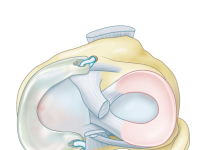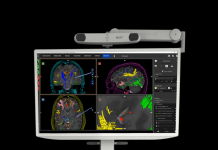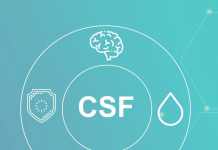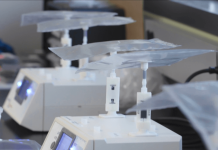Boston Scientific announced that it received FDA approval for its POLARx cryoablation system.
The new system received an indication for the treatment of patients with paroxysmal AFib. It features the POLARx FIT cryoablation balloon catheter. This device enables two balloon sizes (28 mm and 31 mm) all in one catheter.
Cryoablation, a minimally invasive AFib treatment, features a balloon catheter that delivers cryotherapy to the pulmonary vein. It freezes problematic tissue and creates scarring that blocks irregular electrical signals.
Marlborough, Massachusetts-based Boston Scientific designed its POLARx system to address known limitations of existing cryoablation options. Physicians can adjust and expand the new catheter to fit an individual patient’s anatomy during an ablation procedure. Boston Scientific says this can help to mitigate time-consuming and disruptive device changeouts.
The device also enables physicians to treat a wider range of pulmonary vein anatomies and create lesions in optimal positions. This allows the physician to better deliver therapy to areas of the heart in which the signals that cause AFib originate.
“The U.S. approval of the POLARx cryoablation system, which has been used in more than 25,000 patients worldwide to date, marks an exciting advancement for the treatment of AF and a new era of cryoablation capabilities,” said Nick Spadea-Anello, president, Electrophysiology, Boston Scientific. “By prioritizing procedural flexibility and individualized care, this offering transforms a key therapy in the electrophysiology space, addresses the unmet needs of physicians and affirms our commitment to making meaningful innovations to established technologies.”
How Boston Scientific earned approval for its POLARx system
Data from the FROZEN-AF FDA investigational device exemption (IDE) trial supported the POLARx system on its way to approval. The study demonstrated the safety and effectiveness of POLARx in 385 patients with paroxysmal AFib.
Boston Scientific presented results from the prospective, non-randomized, single-arm study at Heart Rhythm 2023.
FROZEN-AF achieved its primary safety endpoint of composite acute and chronic primary safety events through 12 months. It observed an event-free rate of 96% at 12 months in the IDE trial and 100% at six months in the extension.
Boston Scientific received no reports of moderate or severe pulmonary vein stenosis, persistent phrenic nerve palsy or esophageal fistulas in either patient cohort. Rate of freedom from documented atrial arrhythmias came in at 79.9% at 12 months in the IDE trial. It registered at 88% at six months in the extension.
POLARx holds CE mark approval in Europe, having received authorization in February 2020. It also holds approval in Japan, garnering that in October 2021. The POLARx FIT catheter picked up approval in Europe, Japan, Canada and other Asia Pacific markets in 2023 as well.
Dr. Wilber Su called the POLARx system “an exciting development” for the treatment of AFib. The Banner University Director of Electrophysiology said it allows physicians to better tailor care for individual patients. Additionally, he noted, they don’t have to sacrifice safety or efficiency.
“As we saw in clinical evaluation, the combination of maneuverability and variable balloon sizes makes this system particularly useful in addressing longstanding challenges with varying cardiac anatomies and brings to the table occlusion capabilities physicians aren’t used to seeing with traditional systems,” Su said.




